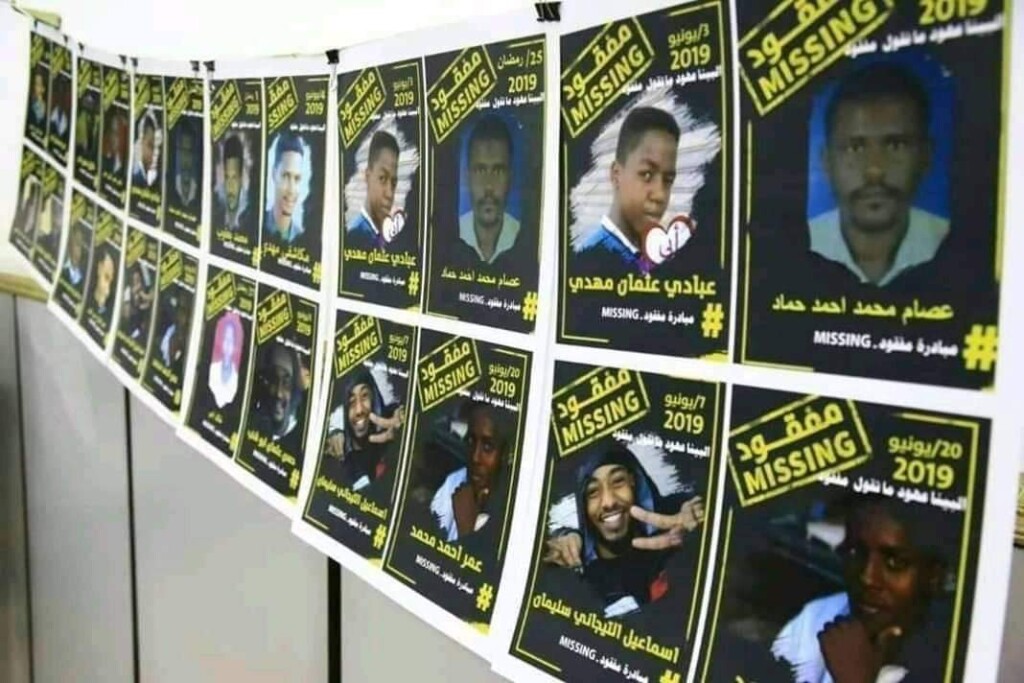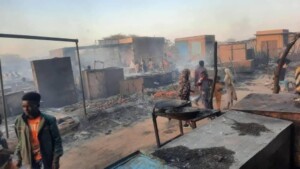Six Sudan activists released amidst continuing military detentions

Posters of missing persons during the 2019 protests in Sudan (Photo: Social media)
The El Dinder Resistance Committees in Sennar reported that six of its members were released by Military Intelligence on Wednesday, while two remain in detention. Several civil society organisations in Sudan have condemned the military detentions that target activists, volunteers, human rights defenders, and journalists in particular.
In a press statement following the detainees’ release on Wednesday, the resistance committees of El Dinder in Sennar accused “members of the [dissolved] National Congress Party (NCP)” of coordinating detentions with the General Intelligence Service* (GIS) and the Sudan Armed Forces (SAF) intelligence units.
The activists now released were reportedly held in the ‘third phase’ of a Military Intelligence detention campaign in late December, along with 30 other people from El Dinder.
These campaigns are widely believed to be part of attempts by elements of the former Al Bashir regime to return to power through the continuation of the war.
The El Dinder Resistance Committees accused Sudan’s Military Intelligence of “enabling elements of the former [Al Bashir] regime to continue the war, and obstruct all efforts by revolutionary forces to stop it”, and noted a return to its “previous approach of committing violations against civilians” through arbitrary detentions.
It further noted that “public opinion in El Dinder is currently concerned with the distribution of weapons in the area”, referring to arms distribution in the area “to leaders of the exterminated [Al Bashir] regime, under the name of the Popular Resistance Authority, which collaborates with [military] security services in Sennar”.
As covered by Radio Dabanga on Tuesday, a report by the Sudanese Observatory for Human Rights condemned the widespread detention campaigns by Military Intelligence and Islamist groups in Sudan against civil society activists.
In late October, eight Sudanese organisations launched the campaign Where Did You Take Them? with the aim of highlighting the issue of the many missing people in the country. More than 840 civilians were reported missing by the Sudanese Group for Victims of Enforced Disappearance as of October, as covered by several news outlets.
*The predecessor of the General Intelligence Service (GIS), the National Intelligence and Security Service (NISS), was one of the most infamous and feared organs of the Omar Al Bashir regime, that acted ruthlessly against any political dissent. The NISS was officially disbanded in July 2019 following the ousting of President Al Bashir three months earlier. Several articles of the National Security Act of 2010 were amended, to restructure the intelligence service and adjust its competences. The GIS is officially no longer authorised to detain people or carry out search operations. However, after the joint SAF-RSF coup d’etat in October 2021, reports of violent suppression of freedoms that characterised the 30-year Al Bashir regime returned in all levels of society. Military Intelligence and GIS were given free powers of detention again.











 and then
and then